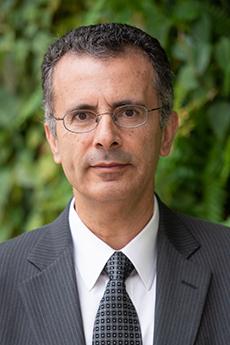AI/Machine Learning
AI/Machine Learning
Artificial Intelligence (AI) and machine learning (ML) research at GW spans from computer vision to natural language processing with applications to some of the most important problems of our time. Our work in this area tries to answer questions like:
- What theoretical and practical machine learning advances are needed to address social needs such as detecting fraud, supporting sex-trafficking investigations, optimizing air-traffic control to support drones, improving computer vision methods for medical diagnosis and protecting vulnerable populations from harmful social media trends?
- What theoretical advances support the application of ML in real-life conditions: How can we model metaphors and irony in natural language? How can we search through non-standard data like sets of math equations?
- How can trustworthy AI systems be designed to best support the modern workplace, both in terms of supporting the people that work there, and understanding the impact of AI choices on the community?
Research Highlights
Professor Rebbeca Hwa
Professor Rebecca Hwa's research sits at the intersection of natural language process, machine learning, and human computer interaction. Her work focuses on developing machine learning methods that reveal the hidden syntactic and semantic structures within languages. These methods have applications in diverse domains, including health, education, and the social sciences. Some of her recent projects include: modeling student behaviors in revising argumentative essays, identifying symbolisms in multimodal rhetorics, and recognizing group biases in social media.
Professor Robert Pless
Professor Robert Pless leads the Traffickcam project, which builds advanced image search algorithms to support the fight against sex trafficking. This project develops new approaches to image search to recognize the hotels where images are taken. His research concentrates on large scale crowd sourcing of imagery, image search that is effective when large parts of the image are masked off, and transfer learning approaches so that images taken by smart phones in bad lighting conditions and be matched to more professional images available on travel websites like Tripadvisor.
More than 300,000 people have downloaded our Traffickcam app to contribute images of their hotel as they travel. This gives us a platform for end-to-end approaches to explainable AI, and we develop visualizations to explain what choices matter at the time of data collection, data representation and algorithm design. This approach gives confidence to investigators that are experts in trafficking but not necessarily image search. The system is deployed and in daily use at the National Center for Missing and Exploited Children.
Professor Pless is exploring the limits of computational photography, to understand how data-driven and geometric techniques can be used to more robustly understand images taken "in the wild". This research exploits the fact that cameras are incredibly precise measurement systems—if they are calibrated properly, then the vast quantities of visual data they collect can help to learn, understand, and manipulate the world around us.
Professor Kinga Dobolyi
Professor Kinga Dobolyi applies Natural Language Processing (NLP) and computer vision to biomedical applications. Her research investigates the utility of statements of research results in COVID-19 academic articles as well as knowledge mining from these texts. One of her recent projects investigated how reliable early research results are during novel disease outbreaks.
Professor Abdou Youssef
The work of Professor Abdou Youssef and his students in Machine Learning, Deep Learning, and Natural Language Processing addresses a broad range of problems and application areas. Examples include fraud detection, anomaly detection, event and causality detection, generation and analysis of figurative language (e.g., on-topic metaphors), error correction in natural language, abstractive summarization of text, transfer learning, more semantically compact representations of language, explainability and interpretability in AI/ML, improving efficiency in model training and model representation, and more. One ML/NLP application of particular interest to Professor Youssef is math linguistics. The focus is on automated extraction and exploitation of semantics in math and STEM text to help users apply math as a service, and to develop tools for mathematicians to boost productivity, automated reasoning, and proof assistants.
Professor James Hahn
Professor James Hahn and The Institute for Innovation in Health Computing are promoting interdisciplinary research and education to solve problems in healthcare using innovative digital solutions. The Institute serves as a focal point on the research interests of its members and the resources of the Institute. The members of the Institute come from a variety of departments including Computer Science, Obstetrics and Gynecology, Anesthesiology and Critical Care Medicine, Medicine, Radiology, Surgery, Statistics, Mechanical and Aerospace Engineering, Pediatrics, Psychology, Psychiatry, Nursing, Exercise and Nutrition Sciences, and Pathology. The funding comes primarily from several prestigious NIH R01 grants. One of the major roles of the Institute is the running of the Motion Capture and Analysis Laboratory (MOCA), which houses the Vicon optical motion capture system as well as the instrument that was developed through the National Science Foundation Major Research Instrumentation Grant (NSF MRI).
Technically, Prof. Hahn is interested in the intersection of machine learning and computer graphics applied to solving problems in healthcare.
Faculty
Associate Professor
Learn More About Professor Park
Associate Professor
Learn More About Professor Wei











